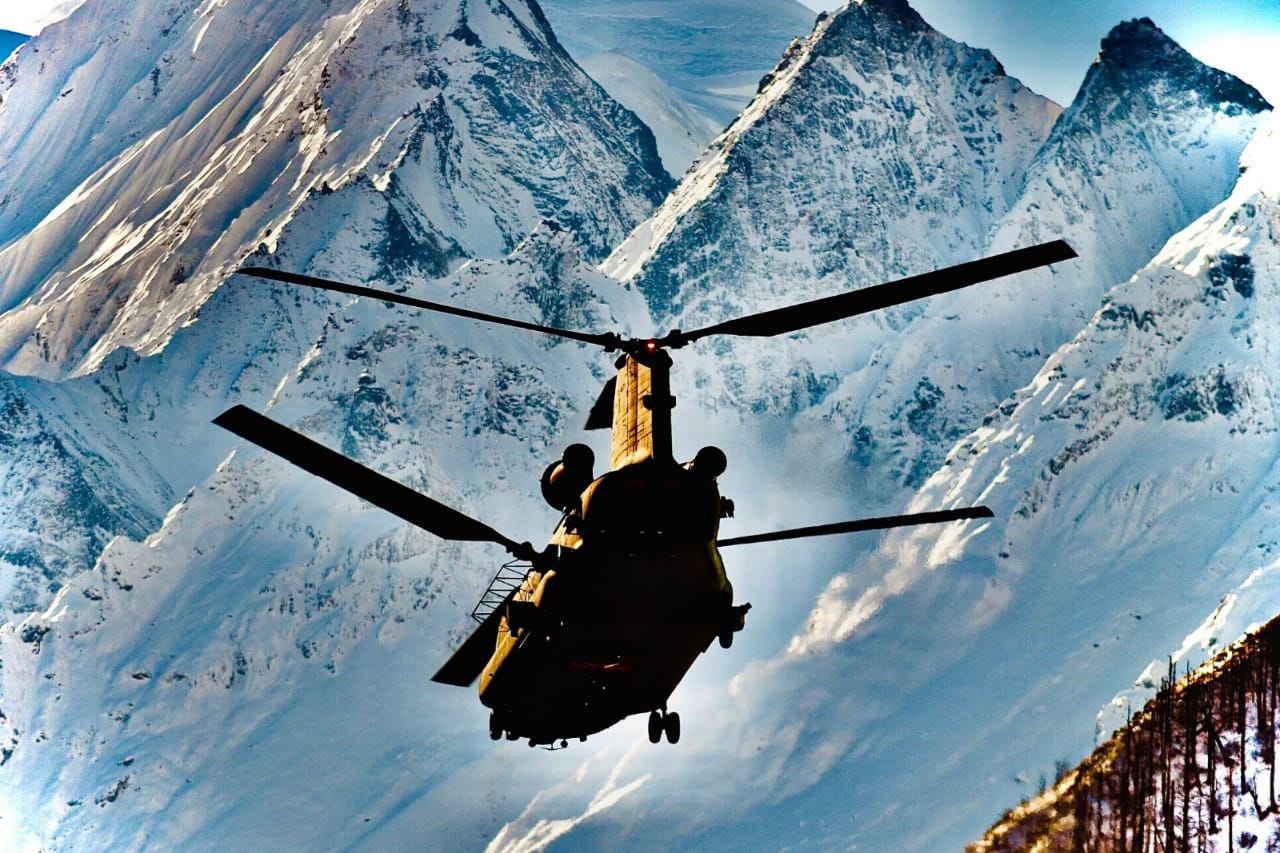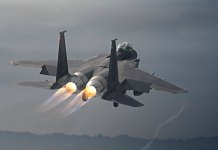An Indian Air Force Chinook helicopter made an emergency landing in Punjab’s Sangrur on Saturday after suspecting a technical issue. The US-supplied helicopter landed on an open ground in the Dhadrian village of Longowal in Sangrur around 1 pm.
Soon after its landing, engineers were called from Barnala in another helicopter to fix the faulty chopper. No loss of lives or injuries have been reported so far, and no damage has been reported to the helicopter.
It may be pointed out that in October 2022, the US Army had to ground the entire Boeing CH-47 Chinook helicopter fleet of around 400 after engine “fires.” The move by the US Army was a precautionary measure: a few engine fires had been witnessed in the helicopters, but these did not result in injuries or deaths.
Honeywell International, the Chinook’s engine manufacturer, said the leaks were due to faulty aftermarket O-rings, which their company did not make.
Incidentally, India went for the CH-47 Chinooks and not the CH-53 in its fleet and they have earned the reputation of workhorses for airlift operations in high-altitude areas of Ladakh and the Siachen Glacier.
Boeing completed the delivery of the Chinooks in 2020.
The IAF, in response to the fires in the US, had said that “IAF Chinooks are flying as before” and that “they have not faced any issues. From what we know, the US grounded its Chinook fleet after a few instances of engine fires due to fuel leaks [that] took place in some choppers that had undergone engine overhauls and maintenance.”
Stallion Crash
Earlier, in a devastating turn of events, a training flight ended in tragedy as a United States Marine Corps helicopter crashed in a remote area of Southern California on February 6. The incident claimed the lives of all five Marines aboard, as confirmed by their Marine Corps unit.
Families and friends are mourning the five Marines who were killed in the Super Stallion crash. All of them were members of Marine Heavy Helicopter Squadron 361, known as the Flying Tigers. The CH-53E Super Stallion was reported overdue while en route from Creech Air Force Base near Las Vegas to Marine Corps Air Station Miramar in San Diego. Maj. Gen. Michael J. Borgschulte, commanding general of the 3rd Marine Aircraft Wing, expressed condolences, stating, “These pilots and crewmembers were serving a calling greater than self and were proud to do so.”
The wreckage of the helicopter was discovered on the morning of February 7 in Pine Valley, a mountainous region approximately 30 miles east of the San Diego station.
The CH-53E Super Stallion is a heavy-lift helicopter capable of transporting troops and equipment, with a cargo capacity of up to 16 tons.
Update: The five 3rd MAW Marines have been confirmed deceased.
“To the families of our fallen Marines, we send our deepest condolences and commit to ensuring your support and care during this incredibly difficult time.” -Maj. Gen. Borgschulte, 3rd MAW Commanding General pic.twitter.com/CBLs2jDKWG
— 3rd Marine Aircraft Wing (@3rdmaw) February 8, 2024
Weather conditions during the incident included gusty winds up to 20 mph in Pine Valley on the evening of February 6, with potentially stronger winds at higher elevations.
Radar data indicates a heavy band of precipitation passing through the area between 10 pm on February 6 and 4 am on February 7, with rain at lower elevations and snow at higher elevations.
The last recorded signal from the aircraft was at 11:20 pm on February 6, according to Cal Fire San Diego spokesperson Mike Cornette.
President Joe Biden expressed his condolences, stating he and First Lady Jill Biden were “heartbroken” by the news. He extended condolences to the families, squadron, and the US Marine Corps, emphasizing the loss of “five of our nation’s finest warriors.”
Sikorsky CH-53 Vs Boeing CH-47 Chinook
The CH-53E Super Stallion is a powerful heavy-lift cargo helicopter predominantly utilized by the US Marine Corps (USMC). Renowned as one of the largest and most potent helicopters within the US military inventory, it can transport up to 16 tons of cargo or accommodate a complement of 55 fully-equipped Marines.
Having entered active duty in the early 1980s, the CH-53E has been extensively employed across diverse operational domains, encompassing troop transportation, logistical support endeavors, and participation in humanitarian relief efforts.

The CH-53 emerged from the US Marines’ “Heavy Helicopter Experimental” (HH(X)) competition, which commenced in 1962. Sikorsky’s S-65, later designated as the CH-53, was selected over Boeing Vertol’s modified CH-47 Chinook version.
The CH-53E Super Stallion, identified as the S-80E by Sikorsky, represents an advanced version of the rotorcraft with augmented lifting capabilities.
The CH-53 and Chinook helicopters are recognized for their robust heavy-lift capabilities, with various iterations of both models remaining in active service within the US military and numerous other armed forces globally.
Interestingly, these helicopters frequently compete for contracts. For instance, in 2021, Israel’s Defense Ministry opted for Lockheed Martin’s CH-53K ‘King Stallion’ heavy-lift helicopter over Boeing’s CH-47 Chinook transport chopper.
Similarly, in 2022, the German government chose Boeing’s CH-47 Chinook to fulfill its requirements for a modern heavy-lift helicopter, preceding the Sikorsky CH-53K for its “Schwerer Transporthubschrauber,” or Heavy Transport Helicopter program.
Despite the CH-53’s larger size than the Chinook’s latest variant, their cabins are nearly identical. Boeing pointed out that due to weight constraints on the CH-53K’s wheels, the CH-47F can often carry more weight internally than the CH-53K.
The CH-47F Block II is a more cost-effective option for initial acquisition, with a per-unit cost of $32 million. In contrast, the CH-53K commands a significantly higher flyaway cost of $91.6 million per aircraft.
However, the King Stallion, CH-53K, boasts a superior load capacity compared to most operational Chinooks. Equipped with three GE Aerospace T408 turboshafts, each rated at 7,500shp (5,520kW), the CH-53K can lift an external load weighing approximately 12,000kg (27,000lb).
The CH-47F Block I model has a useful load of 10,886kg, per Boeing’s specifications. But Boeing highlights that the latest Block II configuration of the Chinook, covered by the German deal, offers a useful load of 12,700kg, slightly surpassing that of the CH-53K.
- By: ET Desk. Edited By TN Ghosh
- Follow EurAsian Times On Twitter (Now X)




